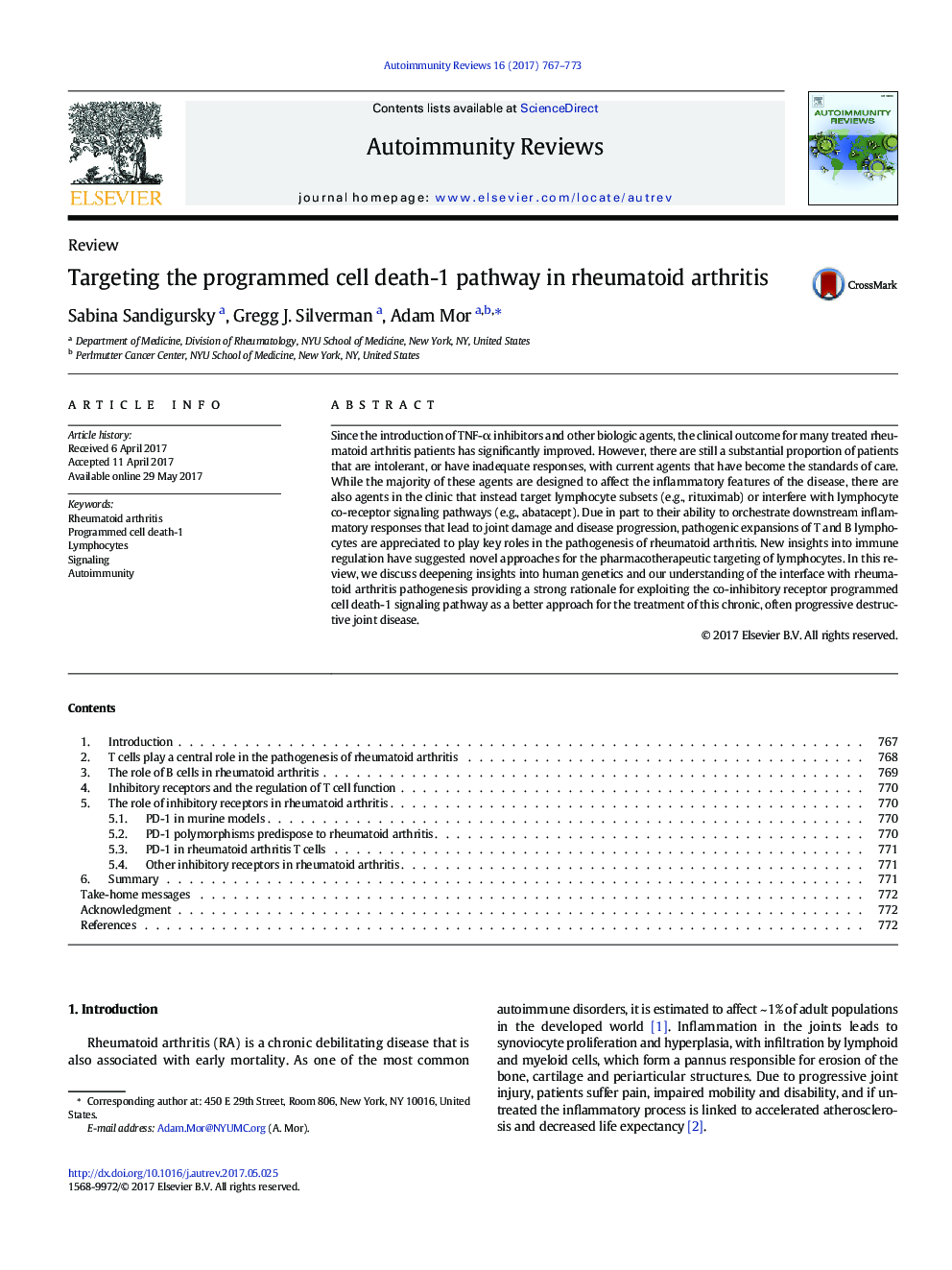| Article ID | Journal | Published Year | Pages | File Type |
|---|---|---|---|---|
| 5665355 | Autoimmunity Reviews | 2017 | 7 Pages |
Since the introduction of TNF-α inhibitors and other biologic agents, the clinical outcome for many treated rheumatoid arthritis patients has significantly improved. However, there are still a substantial proportion of patients that are intolerant, or have inadequate responses, with current agents that have become the standards of care. While the majority of these agents are designed to affect the inflammatory features of the disease, there are also agents in the clinic that instead target lymphocyte subsets (e.g., rituximab) or interfere with lymphocyte co-receptor signaling pathways (e.g., abatacept). Due in part to their ability to orchestrate downstream inflammatory responses that lead to joint damage and disease progression, pathogenic expansions of T and B lymphocytes are appreciated to play key roles in the pathogenesis of rheumatoid arthritis. New insights into immune regulation have suggested novel approaches for the pharmacotherapeutic targeting of lymphocytes. In this review, we discuss deepening insights into human genetics and our understanding of the interface with rheumatoid arthritis pathogenesis providing a strong rationale for exploiting the co-inhibitory receptor programmed cell death-1 signaling pathway as a better approach for the treatment of this chronic, often progressive destructive joint disease.
